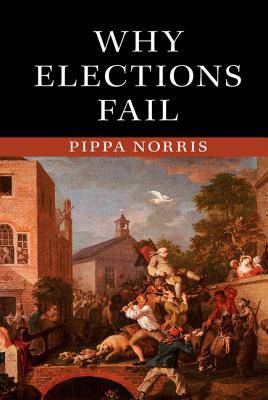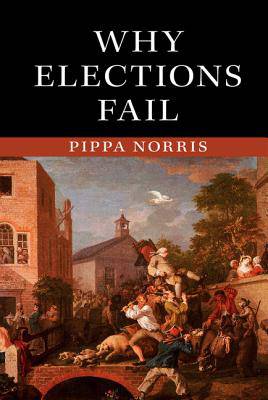
Door een staking bij bpost kan je online bestelling op dit moment iets langer onderweg zijn dan voorzien. Dringend iets nodig? Onze winkels ontvangen jou met open armen!
- Afhalen na 1 uur in een winkel met voorraad
- Gratis thuislevering in België vanaf € 30
- Ruim aanbod met 7 miljoen producten
Door een staking bij bpost kan je online bestelling op dit moment iets langer onderweg zijn dan voorzien. Dringend iets nodig? Onze winkels ontvangen jou met open armen!
- Afhalen na 1 uur in een winkel met voorraad
- Gratis thuislevering in België vanaf € 30
- Ruim aanbod met 7 miljoen producten
Zoeken
Omschrijving
Unfortunately too often elections around the globe are deeply flawed or even fail. What triggers these problems? In this second volume of her trilogy on electoral integrity, Pippa Norris compares structural, international, and institutional accounts as alternative perspectives to explain why elections fail to meet international standards. The book argues that rules preventing political actors from manipulating electoral governance are needed to secure integrity, although at the same time officials also need sufficient resources and capacities to manage elections effectively. Drawing on new evidence, the study determines the most effective types of strategies for strengthening the quality of electoral governance around the world. With a global perspective, this book provides fresh insights into these major issues at the heart of the study of elections and voting behavior, comparative politics, democracy and democratization, political culture, democratic governance, public policymaking, development, international relations and conflict studies, and processes of regime change.
Specificaties
Betrokkenen
- Auteur(s):
- Uitgeverij:
Inhoud
- Aantal bladzijden:
- 264
- Taal:
- Engels
Eigenschappen
- Productcode (EAN):
- 9781107679023
- Verschijningsdatum:
- 8/07/2015
- Uitvoering:
- Paperback
- Formaat:
- Trade paperback (VS)
- Afmetingen:
- 150 mm x 226 mm
- Gewicht:
- 362 g

Alleen bij Standaard Boekhandel
+ 86 punten op je klantenkaart van Standaard Boekhandel
Beoordelingen
We publiceren alleen reviews die voldoen aan de voorwaarden voor reviews. Bekijk onze voorwaarden voor reviews.











